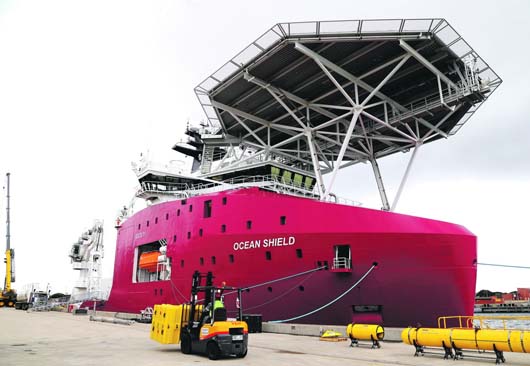
Kuala Lumpur, Apr 4: Malaysian opposition leader Anwar Ibrahim accused the government of hiding information on Flight MH370, as a black-box detector was expected Friday in the search zone nearly a month after the plane vanished.
Anwar said he was "baffled" over the Malaysian military's failure to respond despite detecting the Malaysia Airlines Boeing 777 crossing back over the country's airspace following its mysterious detour.
"Unfortunately the manner in which this was handled after the first few days was clearly suspect," Anwar said in an interview with Britain's Daily Telegraph.
"One fact remains. Clearly information critical to our understanding is deemed missing. I believe the government knows more than us."
Malaysia's response to the crisis has been widely criticised, particularly by distraught relatives of the 153 Chinese people on the plane.
Australia, meanwhile, has assumed increasing responsibility over the physical search for the plane in the Indian Ocean.
Authorities coordinating the search said the Australian naval vessel Ocean Shield, carrying a US-supplied "black box" detector and underwater drone vehicle "for mapping the seafloor", was due to arrive in the area being scoured for wreckage as 14 planes continued the arduous search.
The plane went missing in the early hours of March 8 during a flight from Kuala Lumpur to Beijing with 239 people on board. Malaysia has said satellite data indicates it crashed in the Indian Ocean, far off western Australia.
But no debris indicating a crash site has been found despite an extensive search, as time runs out on the "black box" locator signal, which lasts only around 30 days.
Malaysia 'wasted time'
Malaysian authorities have said they are still stumped over what caused the plane to deviate from its course.
Malaysia's long-ruling government has a poor record on transparency, but Transport Minister Hishammuddin Hussein said this week it was "not hiding anything."
But Anwar, who recently had his acquittal on sodomy charges overturned in what he claims is a political smear by the government, said a "sophisticated" radar system that he authorised as finance minister in 1994 should have led to prompt military action.
Malaysia's armed forces said soon after the plane disappeared that its radar had picked up a unidentified object moving toward the Indian Ocean, but did not respond because it was not deemed hostile.
The decision has been criticised for losing valuable time in tracking the plane's movements. It took Malaysia one week to confirm the radar blip was MH370, and to subsequently reorient a huge search away from its initial focus in the South China Sea.
Anwar said Malaysia should have quickly notified other countries in the search to save them scouring "a place that they know cannot be the site of the plane".
A Malaysian government spokesman did not immediately respond to an AFP request for comment.
Fading hopes for determining MH370's fate are now focused on the Indian Ocean search, in what Australian Prime Minister Tony Abbott called "the most difficult in human history".
Malaysian Prime Minister Najib Razak toured the military base in Perth being used as a staging post and vowed "we will not rest" until the mystery is cracked.
"We want to find answers. We want to provide comfort to the families and we will not rest until answers are indeed found," Najib said, while admitting searchers faced a "gargantuan task."
Window closing on black box
Eight nations, many of whom do not normally work together, have rallied to look for clues in the Indian Ocean. They include Australia, Britain, China, Japan, New Zealand, Malaysia, South Korea and the United States.
Besides planes and vessels from the various nations, a British nuclear submarine with underwater search capabilities joined in Wednesday.
Despite the arrival of the black box detector, hopes of finding the box and its potentially revealing data are slim without a confirmed crash site.
Malaysian police chief Khalid Abu Bakar on Wednesday said all 227 passengers had been "cleared" of suspicion, as authorities probe a possible hijack or sabotage plot.
Police are still investigating the backgrounds of the plane's 12 crew, as well as ground staff and flight engineers, but Khalid indicated no progress had been made and added soberly that authorities may never know what happened.
Beijing has expressed its displeasure with Malaysia over the affair, and ties faced further strain over the kidnapping late Wednesday of a Chinese tourist from a Malaysian diving resort by unidentified gunmen.





Comments
Add new comment